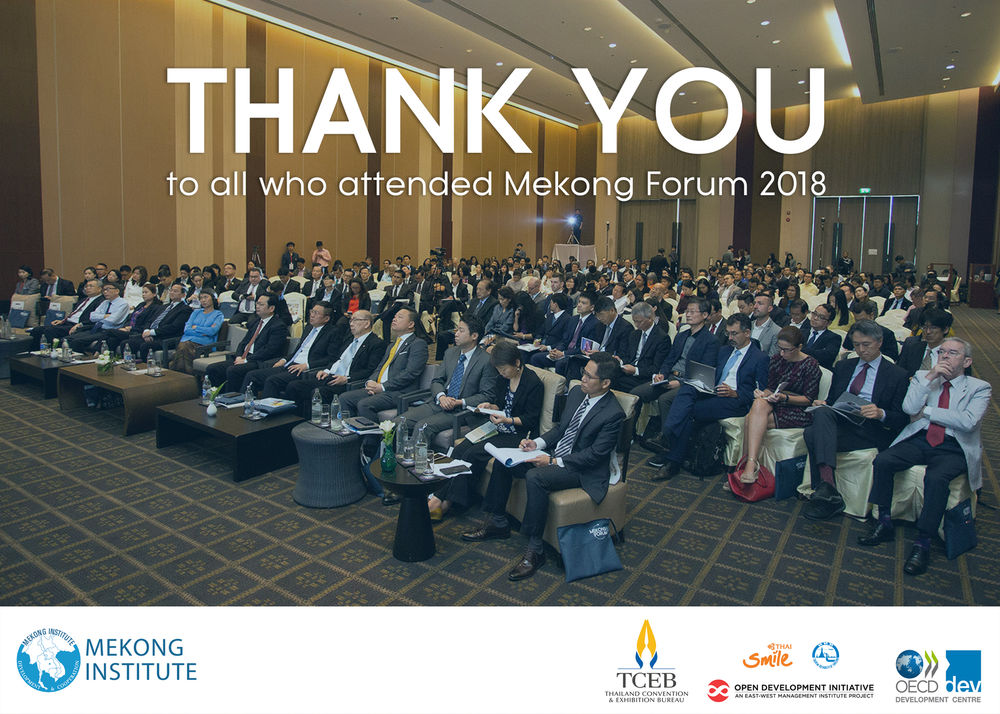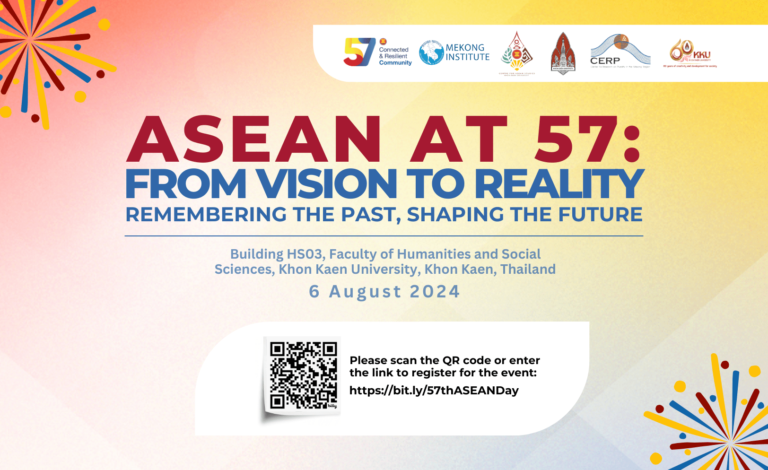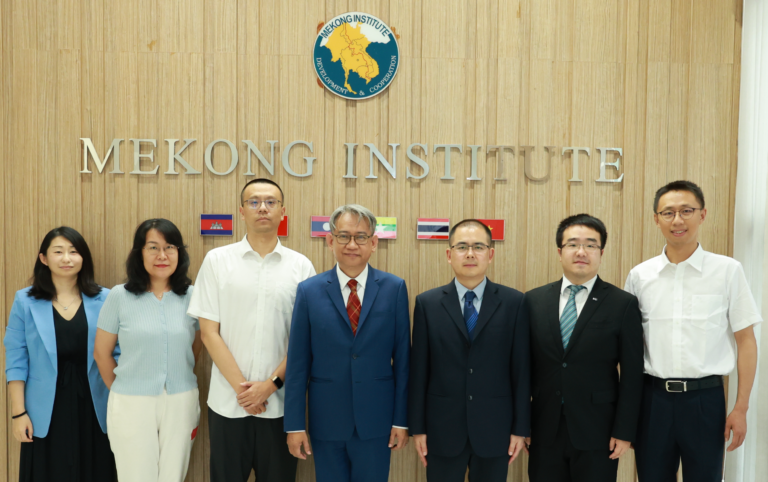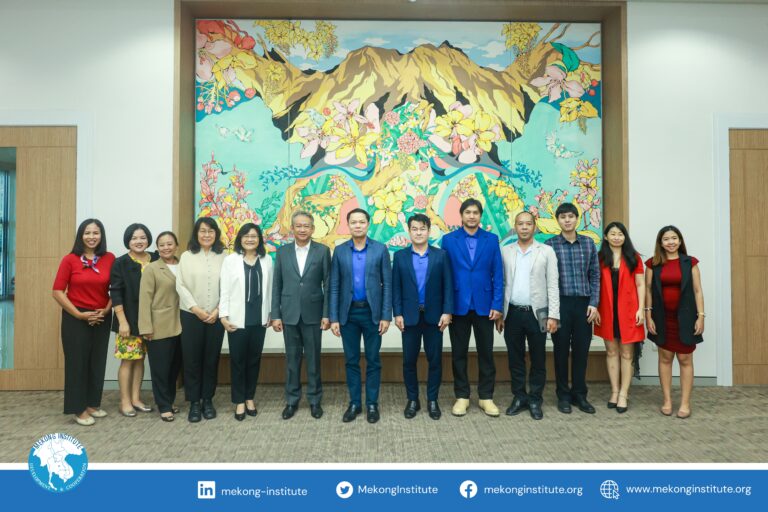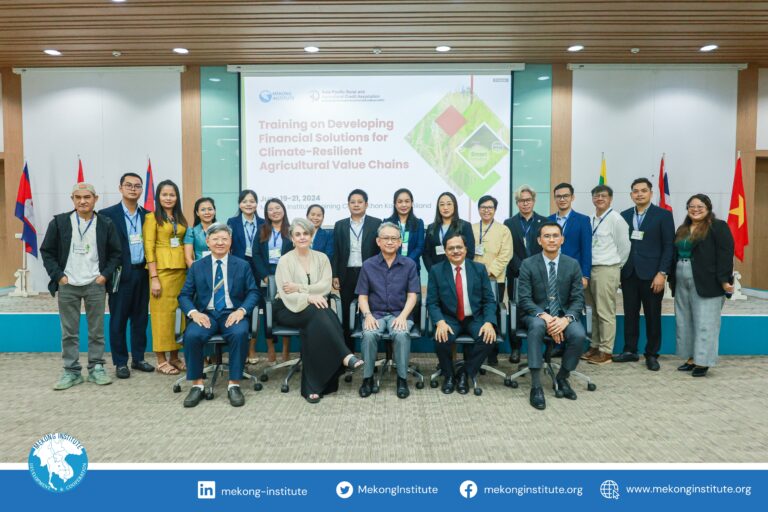Khon Kaen, Thailand – Development actors and leaders from key government ministries in the Greater Mekong Subregion (GMS), the academe, business and civic society and development agencies join the more than 200 participants for the Mekong Forum 2018 on August 3, 2018 at Avani Khon Kaen Hotel & Convention Centre, Khon Kaen, Thailand.
The annual event hosted by Mekong Institute offers development stakeholders from the region a platform for sharing and discussion of the pressing issues concerning GMS development. This year’s theme, Turnarounds and Takeoffs: Speeding Up Competitiveness and Connectivity in the GMS, anchors the discussions on the role of innovation and regional cooperation in fast tracking the growth and progress of the GMS.
Explaining the rationale for this year’s event, MI Executive Director Dr. Watcharas Leelawath said, “Our theme for this year’s Mekong Forum…is grounded on the premise that innovation, hand in hand with cooperation and collaboration, can drive competitiveness and foster increased connectivity among people and communities, and in turn, drive forward a faster growth momentum and development for us in the region.”
In his keynote address, Dr. Narongchai Akrasanee, former Minister of Energy and Minister of Commerce, pointed to the potentials offered by disruptive technologies, Internet of Things and artificial intelligence (AI) economy in bringing about a second economic take-off for the countries in the GMS. These innovations, according to him, can greatly boost connectivity and competitiveness in the region by transforming much-needed structures and processes especially in terms of energy infrastructure and smart technology. “For all these areas of infrastructures, GMS countries should coordinate in their development and utilization,” he emphasized. “MI has been following the development of modern technology very closely. MI is ready to work with the GMS countries in the development of human resources to be capable of making the best use of AI to help the country develop in AI economy,” Dr. Narongchai further added.
Addressing also the various development leaders and partners working both inside and outside the GMS, His Excellency Mr. Zhang Guohua, Vice Governor of The People’s Government of Yunnan Province, P.R. China, stressed some critical points in the cooperation efforts in the GMS, including placing emphasis on open development to improve the quality of economy, improving the capacity for innovation and entrepreneurship, synchronizing development to improve the level of connectivity, and promoting inclusive development for regional win-win cooperation.
“Connectivity would be always a priority area of cooperation. We should continue to strengthen coordination and cooperation. All the governments should pay more attention to improve the institutional environment to enable acceleration of regional comprehensive transport infrastructure development,” he mentioned.
Pointing also to the role of MI in the region, he further added, “Mekong Institute satisfies the human resource demand of regional cooperation projects. We hope that we can work together to invest more resources to build MI into a stronger and more capable platform.”
The Forum’s sessions likewise provided a dynamic and interactive platform for presenting current initiatives geared toward promoting innovation and fostering connectivity through cooperation among GMS countries. Session speakers also put forward ideas for more multi-sectoral collaborative efforts that can drive sub-regional development.
Mekong Forum 2018 is the sixth Mekong Forum since 2011, and organized in cooperation with the Thailand Convention and Exhibition Bureau (TCEB), and with the support of the Organisation for Economic Co-operation and Development (OECD) Development Centre, Open Development Initiative (ODI), and Thai Smile and the Tourism Authority of Thailand (TAT).


